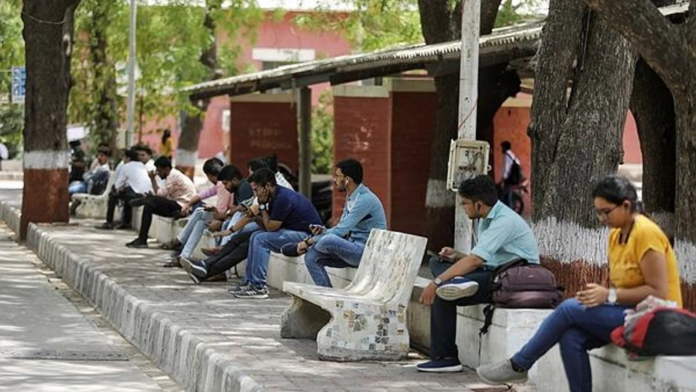Nepotism Rocks UP House Recruitment Process
In a development that has sparked widespread outrage, a recent investigation has revealed that one out of every five jobs in the Uttar Pradesh Legislative Assembly during the 2020-2021 recruitment drive was handed to candidates with connections to influential VVIPs. These individuals allegedly included close relatives of top officials and politicians under whose oversight the recruitment process was conducted, as reported by Indian Express.
Thousands Of Aspirants, Yet The Jobs Were Fixed
The recruitment drive aimed to fill various administrative posts in the UP Legislative Assembly and witnessed overwhelming participation, with over 2.5 lakh applicants competing for limited positions. However, the latest findings indicate that merit may have been sidelined, as a significant number of positions were allocated based on nepotism rather than qualifications.

Allahabad High Court Steps In With Strong Words
The matter gained prominence last year when the Allahabad High Court ordered a Central Bureau of Investigation (CBI) probe into the alleged irregularities in the recruitment process. The court expressed deep concern over the lack of transparency and termed the revelations as “shocking.” It noted that such malpractices severely undermine the credibility of public recruitment systems and foster a culture of corruption.
A Pattern Of Favoritism
According to sources familiar with the investigation, the recruitment process was marred by blatant favoritism. Insiders claimed that several candidates who secured jobs had little to no experience or qualifications for the roles they were appointed to. Their primary qualification, as alleged, was their familial ties to those in power.
Candidates Without Connections Left In The Lurch
While the connected candidates were reportedly given preferential treatment, thousands of genuinely qualified applicants were left disappointed. Many aspirants had spent months preparing for the exams, only to later discover that the process may have been rigged from the start.
Impact On Public Trust
The revelations have dealt a blow to public trust in government institutions and recruitment processes. Aspirants and citizens alike have questioned how such malpractice could occur within a democratic framework. Critics argue that this reflects a deeper systemic issue that needs immediate redress.
Demand For Transparency And Accountability
Political commentators and activists have called for stringent measures to ensure transparency and fairness in government recruitment processes. Suggestions include the implementation of digital monitoring systems, third-party audits, and the mandatory disclosure of selection criteria to the public.
CBI Probe: The Road Ahead
The CBI has taken up the case and is expected to thoroughly investigate the allegations of nepotism and corruption. The agency is likely to scrutinize documents, interview key officials, and examine the role of those in power during the recruitment drive.
Voices Of The Aggrieved
Many aspirants who were affected by the irregularities have expressed their frustration and anger. “We placed our faith in the system, only to realize that the results were predetermined. This is not just a personal loss but a loss for meritocracy,” said one candidate who had appeared for the exams.
Political Fallout
The revelations have triggered a political storm in Uttar Pradesh, with opposition parties slamming the ruling establishment for allowing such irregularities. Leaders have called for accountability at the highest levels and demanded swift action to restore public confidence.
A Wake-Up Call For Systemic Reforms
The UP Legislative Assembly job scandal serves as a wake-up call for the need to overhaul recruitment practices in government institutions. Ensuring merit-based selections is crucial for maintaining the integrity of democratic processes and fostering public faith in governance.
The unfolding developments in this case will be closely watched, not just by the citizens of Uttar Pradesh but by the entire nation. As the investigation progresses, it remains to be seen whether justice will be served and systemic changes implemented to prevent such incidents in the future.

